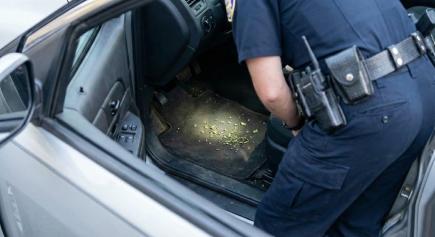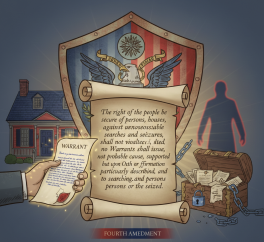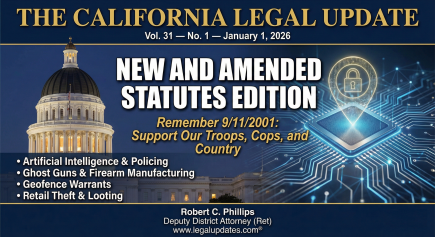

- Ref # CAC00137
- April 28, 2024
Fourth Amendment Waiver Searches: Don’t Prolong a Detention Beyond Why You First Stopped a Driver
- Illegally prolonging a traffic stop before the discovery of a person’s Fourth Amendment waiver conditions makes a subsequent fourth waiver search illegal.
- Prolonged detentions
- Mission of the traffic stop
- Criminal investigations unrelated to the mission of the traffic stop
Reasonable suspicion to believe a vehicle is not properly licensed is sufficient cause to stop the vehicle and investigate. The ensuing determination that the vehicle is, in fact, properly registered requires that once the mission of the traffic stop is completed, the driver must be allowed to leave. An intervening inquiry into other possible criminal conduct that prolongs the detention necessitates the suppression of any information or evidence discovered afterward.
In May, 2021, defendant Anterion Dantelamar Suggs was driving with an acquaintance through Sacramento when a Sacramento Police Department officer observed that his car displayed a paper plate only, with no visible evidence that the car was properly registered or had permanent plates, in an apparent violation of Vehicle Code § 5200. The officer made a traffic stop, but upon walking up to the car, the officer immediately noticed the necessary documentation was attached to the rear window, although it was obscured by the window ....
© 2026 Legal Updates, LLC.
This content is protected by copyright law. Republishing or redistribution in any form without written permission is strictly prohibited. For licensing or reprint requests, contact support@legalupdates.com.



![Warrantless Searches: Do You Know the Difference between ‘Community Caretaking’ and ‘Render[ing] Emergency Assistance?’](/sites/default/files/styles/435_x_242/public/2026-01/GAImage-rb5oktrb5oktrb5o-01242026.png)




